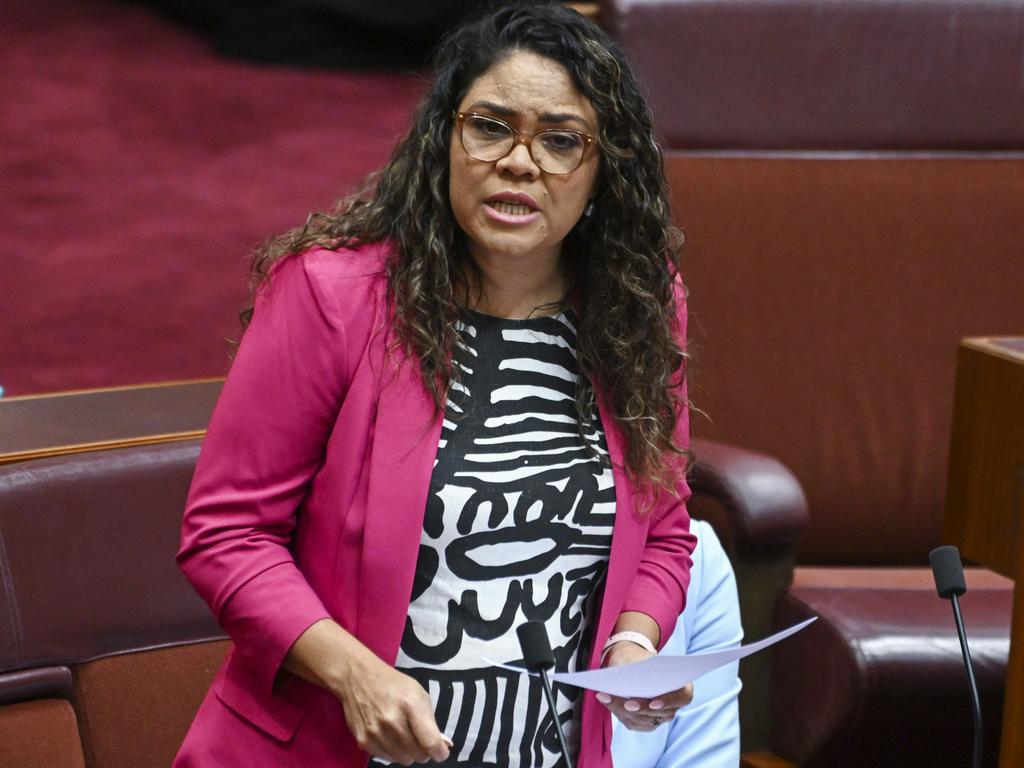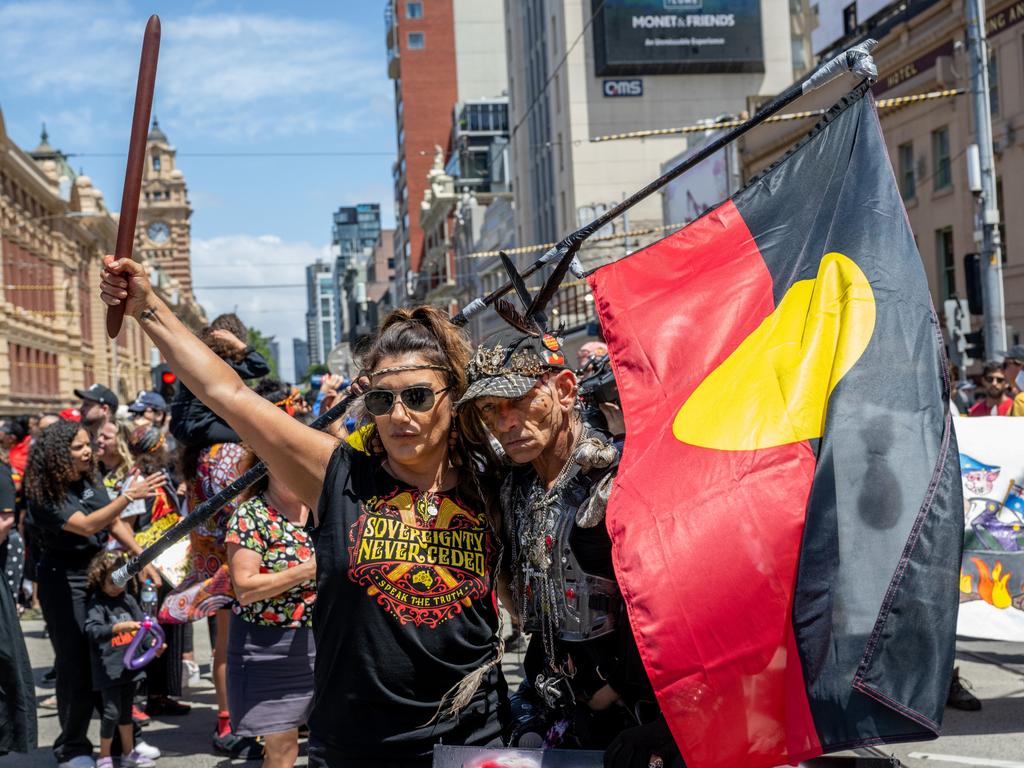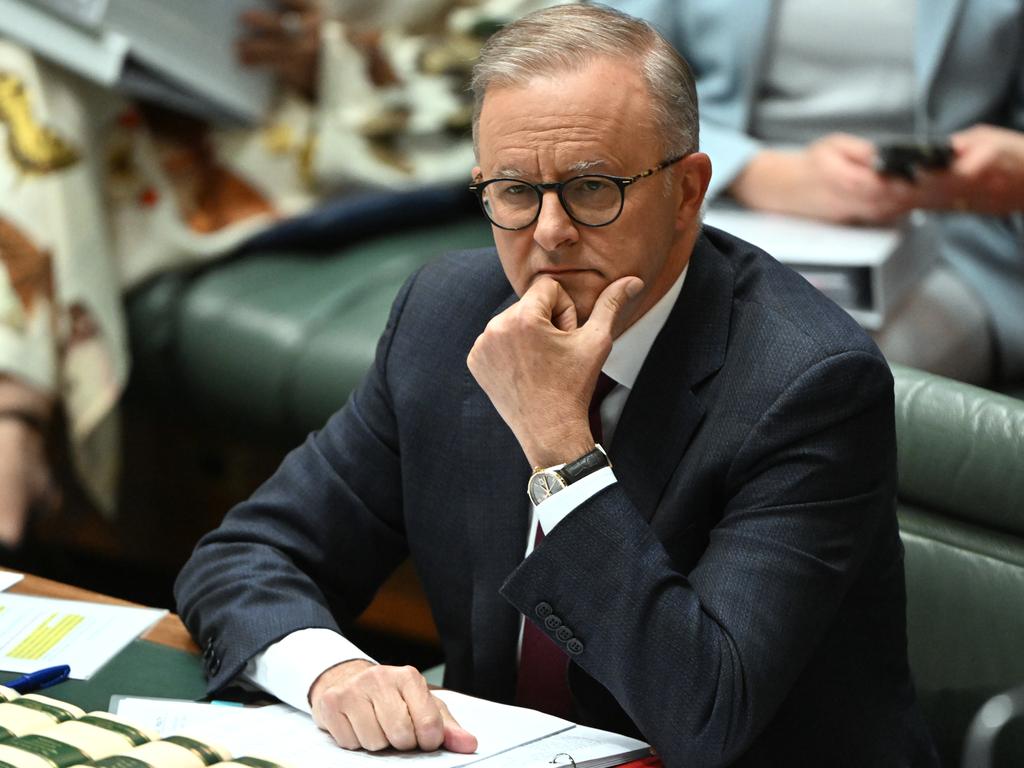South Australia’s voice to be heard in people’s house, but won’t rule it
The feelgood stylings of the national discussion around a voice to parliament have taken more tangible shape in SA.

The feelgood stylings of the national discussion around a voice to parliament have taken more tangible shape in South Australia, where a bill was introduced this week that will see the state have its own voice before the referendum is held later this year.
And unlike others on the broad left of politics who think innate human kindness will see a Yes vote prevail, Premier Peter Malinauskas is astutely aiming his message not at those who agree with the concept, but who are troubled or confused by it.
At a time when the federal plans for a voice still want for detail, the proposed SA legislation gives clearer insights into how a voice would work in terms of elections, function and personnel, but with unanswered questions around the remuneration of voice delegates and the bigger issue of state-based treaties, possibly including compensation for land use and past wrongs.
While the Premier is assured of victory on the floor – the Greens and key independents are backing the bill and, despite misgivings about the process, the historically moderate SA Liberals are expected to do so too – he is yet to convince the SA public of the wisdom of the move.
So when the legislation was unveiled on Tuesday, Malinauskas opened his pitch by tackling the three key criticisms of the proposal – that it grants special political benefits to one group, threatens the primacy of SA parliament and risks becoming a talkfest.
Of the three explanations he gave, the best was his defence of parliament’s ultimate authority, where rather than stumping for meandering reassurances about how the voice was just an advisory body, Malinauskas admitted he could see scenarios where the parliament and the voice came into heated dispute – but where, under the proposed law, the parliament would always win.
Malinauskas was asked if, as the leader of what could fairly be described as Australia’s most conservative Labor government, he could see a scenario where his government’s strong support for the mining sector came into conflict with the voice, even sparking no-confidence calls or demands for a minister or premier to be sacked.

“The voice to parliament will be entitled to express a view however they see fit,” Malinauskas said.
“I expect that there will be points in time where there are existing government policies – and we are a pro-mining government – where we will have to account for the fact that we have a different view to what the voice says.
“But that will be on full public display, completely transparent, and people will have to formulate a view accordingly. Politicians such as myself being held to account by the broader public about why we might have a different position to the voice is a good thing. That public aeration of different points of view is the way our democracy functions, the way it is enhanced. I will be held to account. Why shouldn’t I have to confront that challenge? It’s no different to any other.
“But that’s the whole point – the voice to the parliament can’t usurp the views of elected MPs. There is no primacy of the voice over the parliament. It is simply just an opportunity for Aboriginal people to express a structured view.”
As for the concept of giving special benefits to Indigenous Australians – including the legislated right for the SA voice delegates to address state cabinet twice a year – Malinauskas said the argument was twofold.
First, it addressed the truth of Aboriginal occupation of Australia, and the undeniable fact that since their occupation was interrupted 200-odd years ago, by almost every key measure their lives have been worse than anyone else’s in what was once their own country.
“You have to start with the undeniable truth that Aboriginal people are the most disadvantaged in our nation, despite their connection with this country for over 60,000 years,” Malinauskas said.
“I ask myself, is the status quo good enough in terms of not just a little bit of over-representation but dramatic over-representation of Aboriginal people in our prisons, dramatically worse health outcomes for both elderly and younger Aboriginal Australians, worse educational outcomes … the list goes on.
“Is that satisfactory? Is the status quo OK? I think most people would say of course not. So what can we do to turn this around?
“The current state of play, the 60,000-plus years of history, warrants a formula and mechanism for Aboriginal people to have a say.”
As per the presentation to national cabinet by voice senior advisory group member Pat Turner, Malinauskas says he wants the work of the SA voice to be linked to the Closing the Gap targets, so it does not operate as tokenistic but is tied to meaningful goals to address disadvantage.
“As for it being a talkfest, I know plenty of people who think parliaments full stop are a talkfest,” Malinauskas said.
“But our system of government has produced the best standard of living anywhere in the world, with extraordinary economic and social progress. There is one group of people who have been almost permanently left behind in that endeavour over the course of more than 200 years in Australia, and that is Aboriginal people, the very people who have been the custodians of the land for 60,000 years.
“So while I acknowledge that people say ‘Oh yeah, it’s just a talkfest’, I believe that parliaments for all their occasional failings are inherently good and that parliament is the right forum for the voice.”
In the first confirmation of what a state voice will cost the taxpayers, the SA government announced on Tuesday that $10m would be allocated over the next four years to cover the cost of statewide elections for 46 voice delegates, their remuneration, and an unspecified number of support and administrative staff.
In a tactical misstep – especially in the midst of a cost-of-living squeeze – the government has still failed to confirm exactly how much each delegate will be paid, save for a reassurance by the Premier it would be at the lower end of a government board position, between $5000 and $20,000 a year.
Delegates will be elected in a two-tiered model, with a series of local First Nations voices each having two presiding officers, one male and one female, who will then make up the state First Nations voice, which will formally address the parliament once a year.
The geographic division of the Local First Nations Voices will be based around six existing Indigenous boundaries such as Kaurna for the Adelaide Plains and Fleurieu, Ngarrindjeri for the Coorong and Murraylands, and Pitjantjatjara for the northern desert country.
The Kaurna/Adelaide Local Voice will have 11 members, reflecting the bigger Aboriginal population, while the five regional voices will have seven members, with 12 members being appointed from that pool of 46 to create the state voice.
Attorney-General Kyam Maher told The Weekend Australian that as other states implement their own state-based voices, there would be a need to avoid duplication, and that he and other A-Gs and Indigenous Affairs ministers had been discussing the possibility of voice delegates elected at the state level also serving as members of the federal voice.
But Maher says it is important voices existed at both the state and federal level to ensure advice could be sought on the different policy roles of the two tiers of government.
“The states do a lot in the service delivery area but the big settings for policy areas are done by the federal government,” Maher told Inquirer.
“They are separate roles but they could possibly involve the same people. We have been conscious to make sure that, if the referendum gets up, we can use what we are doing here as a possible building block for a federal voice. There is a very good possibility we will see most jurisdictions head down the path similar to what we are doing in SA.”







To join the conversation, please log in. Don't have an account? Register
Join the conversation, you are commenting as Logout